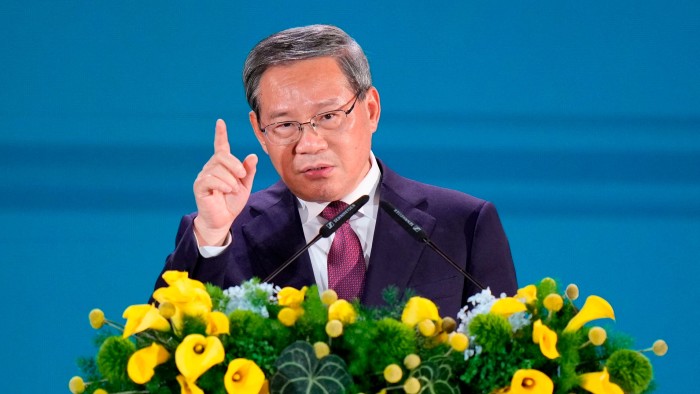China’s Strategic Pivot: Engaging Asian and Gulf Partners Amid Global Trade Shift
As global trade dynamics evolve, China is actively seeking alliances with Asian and Gulf nations, marking a potential turning point in international commerce. This strategic outreach could reshape trade relationships and influence economic policies across the region.
The Changing Landscape of Global Trade
The global trade environment has been undergoing significant changes, particularly in the wake of the COVID-19 pandemic and rising geopolitical tensions. Countries are reassessing their trade partnerships and economic dependencies. For China, this has presented both challenges and opportunities.
According to a report by the World Trade Organization (WTO), global merchandise trade volume is projected to rise by 8% in 2021. However, the trade patterns are shifting, with emerging economies in Asia and the Gulf region taking center stage. China’s pivot towards these regions underscores its strategic intent to diversify its economic partnerships and reduce reliance on Western markets.
Strengthening Ties with Asian Nations
China has long viewed Asia as a critical component of its economic strategy. The Regional Comprehensive Economic Partnership (RCEP), which came into effect in January 2022, is a testament to this commitment. This trade agreement involves 15 Asia-Pacific nations and aims to lower tariffs and enhance trade facilitation.
- Investment in Infrastructure: China’s Belt and Road Initiative (BRI) continues to expand, with significant investments in infrastructure projects across Asia. This not only enhances connectivity but also solidifies China’s role as a key economic player in the region.
- Trade Agreements: Recent trade agreements with countries like ASEAN members and India reflect China’s intent to strengthen bilateral trade relations. These agreements are designed to enhance market access and promote investment opportunities.
Engagement with Gulf Partners
Parallel to its focus on Asia, China has been actively engaging Gulf nations. The Gulf Cooperation Council (GCC) represents a significant market for Chinese exports, while China is a crucial source of imports for these oil-rich economies.
In recent years, trade between China and Gulf countries has surged, with figures from the China-GCC Free Trade Agreement negotiations indicating a potential doubling of trade volume by 2030. This partnership is not just limited to trade; it encompasses technology transfers, energy cooperation, and joint ventures in various sectors.
Energy Security and Economic Diversification
China’s reliance on Gulf oil is a critical aspect of its energy security strategy. As the world transitions towards renewable energy, Gulf nations are also diversifying their economies. This presents a unique opportunity for both parties to collaborate on sustainable energy initiatives.
For instance, Saudi Arabia’s Vision 2030 aims to reduce its dependence on oil and diversify its economy. China, with its expertise in technology and renewable energy, is well-positioned to support these initiatives, ensuring mutual benefits.
Potential Impacts on Global Economic Policies
China’s strategic outreach to Asian and Gulf partners could have significant implications for global economic policies. As these alliances strengthen, they may challenge the existing dominance of Western economies in international trade.
- Shift in Trade Norms: The emergence of new trade blocs centered around China could lead to a reconfiguration of trade norms and practices, favoring non-Western perspectives.
- Influence on Global Supply Chains: As China solidifies its partnerships, global supply chains may become increasingly centered in Asia and the Gulf, potentially disrupting traditional supply routes.
Future Outlook: What Lies Ahead?
Looking ahead, the future of China’s strategic pivot appears promising yet complex. While the strengthening of ties with Asian and Gulf partners presents opportunities for economic growth, it also raises questions about the sustainability of these relationships in the long term.
Analysts suggest that the success of China’s strategy will depend on its ability to navigate the intricate geopolitical landscape, characterized by competition with the United States and its allies. Furthermore, fostering equitable partnerships that benefit all parties involved will be crucial to maintaining stability in these relationships.
Conclusion: A New Era of Trade Relationships
In conclusion, China’s strategic pivot towards Asian and Gulf partners is set to reshape the landscape of international commerce. As trade dynamics continue to evolve, the implications of these alliances will extend beyond economic benefits, influencing global policies and geopolitics.
As stakeholders in the global economy, it is essential to monitor these developments closely. Understanding the nuances of China’s approach and its potential impacts will be pivotal for businesses and governments alike. Are you ready to adapt to the changing tides of global trade?
See more CCTV News Daily
